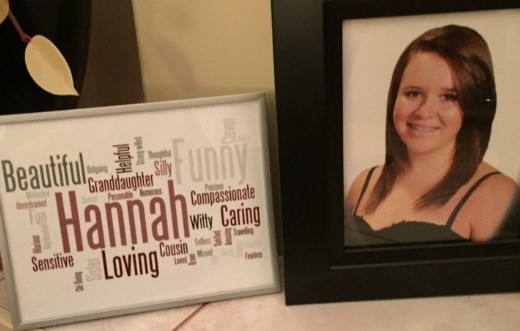The loss of a loved one is never easy. And when that loss comes under such heartbreaking circumstances, the journey through grief can feel especially heavy. But in this sorrow, many people find solace in creating something lasting. A testament to the love and memories shared.
Hi, I’m your host, Cara Jones, and this is the Starting Conversations Podcast, an initiative of the Resource Centre for Suicide Prevention, where we explore personal stories, expert insights and practical advice to break the silence and stigma.
Recently, I met with Ali Thibert from the Northwestern Alberta Foundation here in Grand Prairie, who shared some information on how their organization assists people who want to start a memorial foundation.
Cara: Can you tell me a little bit about NAF and what it stands for?
Ali Thibert: NAF stands for Northwestern Alberta Foundation. We cover all of Northwestern Alberta, support non-profit and charity organizations, and help match donors to the causes they care about. So, they create funds with us, and we put them into an endowment account, which gets invested. And a portion of that investment income is what gets grants out within the community.
When Andre and Tammy Oulette were faced with the devastating loss of their daughter Hannah, they wanted to create something to honour their daughter’s life while giving back to organizations like the Resource Centre for Suicide Prevention. We are so grateful to Andre and Tammy for sitting down with us and sharing their journey around setting up the Hannah Oulette Memorial Foundation through NAF.

Andre Oulette: Eleven years ago, we set up the Hannah Oulette Memorial Foundation through Community Foundation. We thought it was a great way for us to donate money through the Community Foundation, which goes to RCSP. The funds never run out, so the Resource Centre for Suicide Prevention will always receive a portion of those funds. We thought it was a good fit for our family and the community.
Tammy Oulette: Donations were happening, with things like a fundraiser around these bracelets. There had been a couple of weddings, and people wanted to make a donation in Hannah’s name instead of doing an open bar. We didn’t want it to be a one-time donation to the Resource Centre for Suicide Prevention. We thought the Community Foundation and setting up a memorial fund was a better way to use those resources long-term.
Cara: When it comes to youth, prevention is a huge thing, and this fund absolutely helps assist youth programming. What would you like to see for mental health awareness prevention in the future when it comes to safe spaces for youth?
Tammy Oulette: I think just that. I think you hit saying “safe” because often times it’s not safe at home, it’s not safe at school. It’s definitely not safe online. So just looking at, you know, what is safe for kids and whether it’s bullying or gender identity troubles at home, that sort of thing. I think that having resources where kids can reach out is extremely important.
Cara: Since starting the memorial fund. Have you seen changes in society when it comes to talking about mental health and wellness? Have you seen things change, or would you like to see more change?
Andre Oulette: There’s always opportunity for more change, but I think when Hannah died by suicide, I think the perception around suicide has changed quite a bit, and I think people are more willing to talk about it. Youth let people know that they are struggling and there is a place for them to go if they need help.
Tammy Oulette: I think that there has been change, but yeah, there still needs to be the resources available. I think people are more willing to talk about it, but I also think that there’s still a lot of taboo and stigma there. I just know for us that is why, even in the obituary, it was clear that she died by suicide. Where a lot of people might shy away from the language and the facts, we try to be very open about that.
If you or someone you love is struggling with Mental Health in Alberta, you can find resources on our website startingconversations.ca. Together, we can shift the narrative around Mental Health and end the stigma, one conversation at a time.
Inclusion Statement
At RCSP, we believe that meaningful dialogue thrives in spaces where everyone feels seen, heard, and valued. Our commitment to inclusion means amplifying all voices, sharing stories from all walks of life, and creating content that is accessible to everyone. Each episode of our podcast, Starting Conversations, will include a blog with transcriptions of our conversations to ensure that the content is accessible to a diverse audience, including neurodiverse individuals and those who are deaf or hard of hearing.
